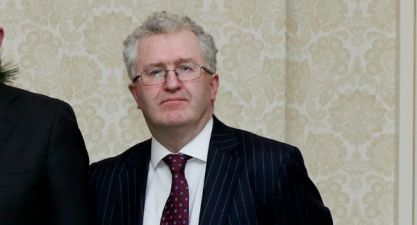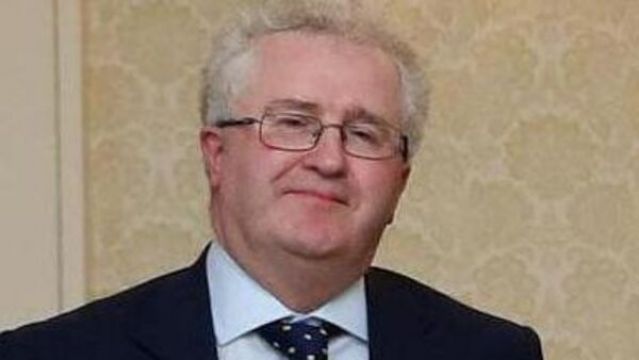The Government has said that "serious constitutional issues" have arisen following disagreement between Supreme Court judges over attendance at the controversial golf society dinner now labelled “Golfgate”.
It emerged late last night that Chief Justice Frank Clarke told Supreme Court judge Seamus Woulfe he believes he should resign over his attendance at the event.
In an unprecedented crisis for the Supreme Court, Mr Woulfe has said he will not do so.
In a statement issued this afternoon, the Government said it had considered the correspondence between the Chief Justice and Mr Justice Woulfe which was published yesterday.
"The Attorney General outlined the serious constitutional issues that now arise and the respective responsibilities of each of the organs of the State as set out in the Constitution, including in particular the respective roles of the Judiciary and of the Oireachtas," the statement said.
"The Members of the Government, who are also Members of the Oireachtas, are acutely aware of the sensitivity and seriousness of the issues and the need to ensure that the constitutional framework is fully respected by all concerned. This includes avoiding inappropriate public comment."
The Government said it had agreed that it would "continue to reflect" on the issues.
Resignation
Mr Justice Frank Clarke expressed his personal opinion that Mr Woulfe should resign over his handling of the controversy labelled “Golfgate" that followed a dinner held in breach of Covid-19 restrictions in August, according to the Irish Times.
The Chief Justice told the judge at a meeting last Thursday he should resign and reiterated that view in letters that evening and today, Monday.
The Chief Justice said the “unanimous view” of all members of the Supreme Court is that the judge has caused “significant and irreparable” damage to the court by how he has handled the matter, according to his November 5th letter.
It is not part of my role to ask, let alone tell, you to resign
“It is not part of my role to ask, let alone tell, you to resign. Resignation is and can only be for the judge him or herself. Regrettably, however, I believe that I should make clear my personal opinion that, to avoid continuing serious damage to the judiciary, you should resign," the Chief Justice wrote.
Mr Justice Woulfe replied the same evening he would not resign but is willing to donate three months of his salary to charity, not sit as a Supreme Court judge until February 2021 and to sit as a High Court judge to help out that court.
He said he did not think any of the reasons put forward for his resignation “remotely constitute substantial reasons or grounds for my resignation, let alone amount to judicial misconduct”.
He said he and the Chief Justice “have never met, formally or informally, to discuss the issues” in his nine page reply, despite former Chief Justice Susan Denham’s recommendation of an informal resolution process over his attendance at the dinner.
Letters

In his reply on Monday, the Chief Justice said he “regrettably” remained of the view that he should resign in order to maintain public confidence in the Supreme Court, the judiciary generally and the administration of justice.
On Monday night, the Supreme Court published letters exchanged between the Chief Justice and Mr Justice Woulfe following meetings last week to address the controversy. Mr Justice Woulfe had opposed publication.
Last week’s meetings followed the publication on October 1st of a non-statutory review by Ms Justice Susan Denham which expressed the view Mr Justice Woulfe had not broken any law or knowingly breached any public health regulations by attending the dinner.
Ms Justice Denham expressed the opinion he should not have attended at the dinner and was of opinion his resignation over the matter would be unjust and disproportionate and the Chief Justice should resolve the matter informally.







